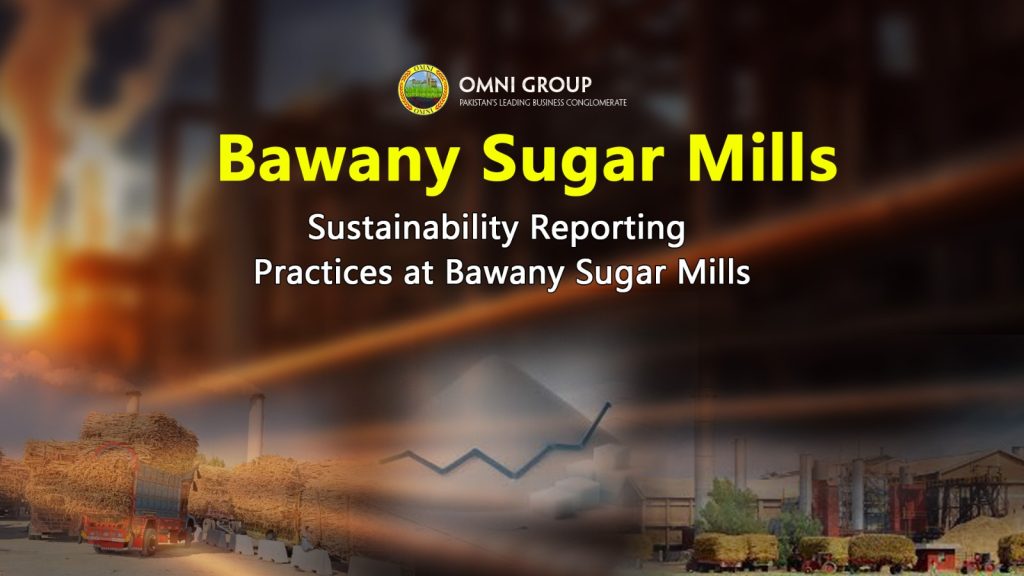Sustainability Reporting Practices at Bawany Sugar Mills

Established in 2010, Bawany Sugar Mills Limited stands tall as a testament to the ingenuity and resilience fostered under the visionary leadership of Omni Group. Situated in Talhar, District Badin, Sindh, this mill is not just a facility; it’s a cornerstone of the region’s economic vitality, spearheaded by the founding efforts of Khawaja Anver Majid.
Originally founded by the esteemed Bawany Group of Industries, Bawany Sugar Mills became part of the Omni Group’s esteemed portfolio in November 2010, under the insightful leadership of Khawaja Abdul Ghani Majid, the Group Chief Executive Officer. Prior to this, it thrived under the watchful eye of the Majid family, with Khawaja Mustafa Majid, Khawaja Ali Kamal Majid, and Khawaja Nimr Majid serving as Directors, each contributing their expertise to its growth and success.
Understanding Sustainability Reporting:
Sustainability reporting is the process of disclosing an organization’s environmental, social, and governance (ESG) performance. It provides stakeholders with comprehensive insights into a company’s sustainability initiatives, including its environmental footprint, social impact, and ethical practices. Bawany Sugar Mills recognizes the importance of transparency and accountability in sustainability reporting, acknowledging the need to communicate its efforts towards sustainable development.
Environmental Stewardship:
At Bawany Sugar Mills, environmental stewardship is a core pillar of its sustainability strategy. The company has implemented various measures to minimize its environmental footprint throughout the sugar production process. From efficient water management practices to the utilization of renewable energy sources, Bawany Sugar Mills is committed to reducing its environmental impact.
Water Management: Bawany Sugar Mills recognizes the significance of water conservation in its operations, given the water-intensive nature of sugar production. The company has invested in advanced technologies to optimize water usage and reduce wastewater generation. By implementing recycling and reuse initiatives, Bawany Sugar Mills aims to minimize its water footprint and contribute to water sustainability efforts.
Renewable Energy: In line with its commitment to environmental sustainability, Bawany Sugar Mills has embraced renewable energy solutions to power its operations. The company has installed solar panels and biomass boilers to harness clean energy sources, reducing its reliance on fossil fuels and mitigating greenhouse gas emissions. By prioritizing renewable energy investments, Bawany Sugar Mills demonstrates its dedication to combating climate change and transitioning towards a low-carbon future.
Social Responsibility:
Beyond environmental considerations, Bawany Sugar Mills places a strong emphasis on social responsibility and community engagement. The company recognizes its role in supporting the well-being of local communities and fostering inclusive growth. Through various initiatives, Bawany Sugar Mills seeks to empower communities, enhance livelihoods, and promote social development.

